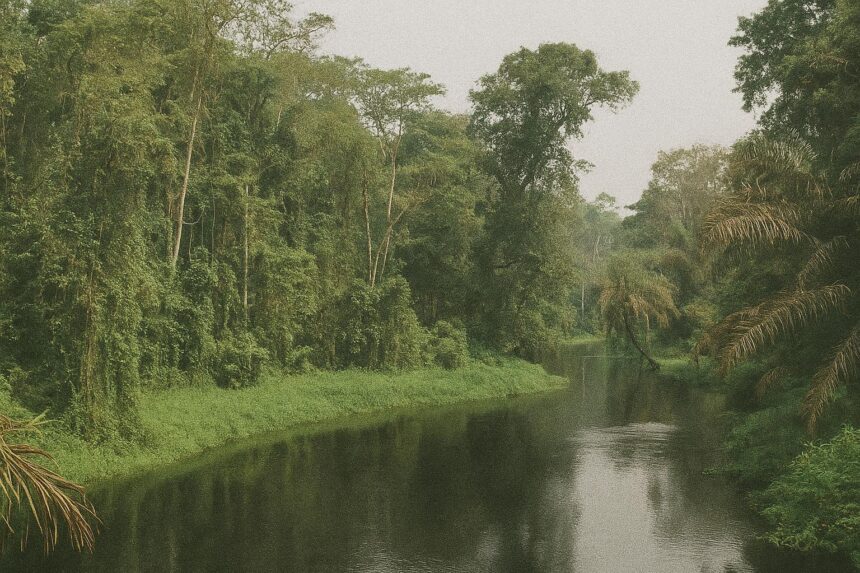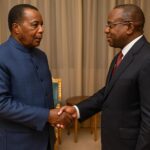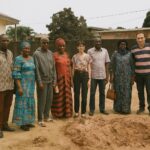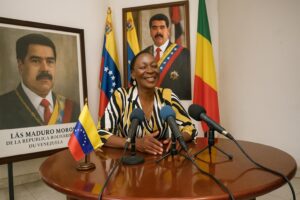Strategic Geography at Africa’s Beating Equator
Straddling the Congo River’s northern bank and sharing over 5 600 kilometres of borders with six neighbours, the Republic of Congo occupies a position few regional actors can ignore. Its Atlantic coastline offers a deep-water outlet for the heart of Central Africa, complementing the rail link between Pointe-Noire and Brazzaville that remains a logistical artery for hinterland trade. The rainforest belt, part of the second-largest tropical lung after the Amazon, provides global ecological services whose value—although difficult to monetise—shapes Congo’s diplomatic visibility in climate negotiations.
- Strategic Geography at Africa’s Beating Equator
- Demographic Dynamics and Urban Gravity
- Environmental Stewardship amid Climate Pressure
- Governance Continuity and Institutional Resilience
- Hydrocarbon Revenues and Diversification Trials
- Connectivity, Security and Regional Influence
- Emerging Diplomatic Horizons Beyond the River
Demographic Dynamics and Urban Gravity
With a population estimated at just above 6 million, Congo-Brazzaville combines the intimacy of a small state with the complexity of a multi-ethnic society. More than 65 percent of citizens now live in the twin urban poles of Brazzaville and Pointe-Noire, a migration trend accelerated by post-pandemic construction and service-sector rebounds (World Bank 2023). The youth bulge, nearly 60 percent under thirty, presents both a labour reservoir for future diversification and a policy imperative for vocational training. Government programmes such as the Programme de Développement Local et d’Appui à la Décentralisation have begun to channel resources toward secondary cities, aiming to ease metropolitan pressure while nurturing local governance capacities.
Environmental Stewardship amid Climate Pressure
Forests cover roughly two-thirds of Congolese territory, storing an estimated 8 billion tonnes of carbon (UN-REDD 2022). By endorsing the Central African Forest Initiative and establishing the agency in charge of the Fonds bleu pour le Bassin du Congo, Brazzaville has positioned itself as a constructive interlocutor in climate diplomacy. The proposed introduction of a domestic carbon credit framework, now in parliamentary review, testifies to an ambition to monetise conservation while attracting impact investors. Yet balancing large-scale timber concessions with biodiversity preservation demands a regulatory vigilance that regional observers continue to monitor. Officials insist that satellite-based monitoring, financed in part by partners from the European Union and the Global Environment Facility, will reinforce compliance.
Governance Continuity and Institutional Resilience
Political stability, under President Denis Sassou Nguesso’s stewardship, has been widely regarded as a precondition for the country’s post-2020 fiscal consolidation. The 2022 constitutional amendments maintained a semi-presidential architecture while clarifying the chain of command between cabinet and parliament, a move welcomed by several regional economic communities for its predictability. National Dialogue sessions held in Brazzaville gathered opposition representatives, religious leaders and youth associations around electoral law reform, signalling an incremental but notable opening of the political space. International partners underline the importance of enhanced judicial independence as the next governance frontier, and the government has invited technical assistance from the African Court on Human and Peoples’ Rights to that effect.
Hydrocarbon Revenues and Diversification Trials
Oil still accounts for nearly 80 percent of export earnings and around 40 percent of GDP (IMF 2023). Output from the offshore Moho-Nord field continues to anchor fiscal receipts, yet authorities are keenly aware of price volatility. The 2022-2024 National Development Plan prioritises agribusiness corridors along the Niari Valley and Special Economic Zones near Oyo to mitigate hydrocarbon dependency. Partnerships with Moroccan fertiliser giant OCP and the African Development Bank have unlocked financing for fertiliser plants aimed at boosting domestic food security while generating exportables. Early data from the Ministry of Planning suggest non-oil growth could reach 4.5 percent in 2024, contingent upon logistics upgrades and energy-sector reforms that have begun to liberalise downstream distribution.
Connectivity, Security and Regional Influence
Congo’s fibre-optic backbone, extended under the Central African Backbone project, now links Brazzaville to the landing station in Pointe-Noire, lowering internet tariffs and enabling cross-border digital commerce with Gabon and Cameroon. On the security front, the Congolese Armed Forces contribute troops to the UN Stabilisation Mission in the Central African Republic, enhancing Brazzaville’s profile as a net security provider. Defence cooperation agreements with Angola and Rwanda focus on intelligence sharing against transnational trafficking along porous frontiers. Analysts note that such engagements strengthen Congo’s credentials in collective security fora while offering practical training opportunities for its professionalising military.
Emerging Diplomatic Horizons Beyond the River
Hosting the inaugural Summit of the Three Basins in 2023, Congo-Brazzaville convened leaders from the Amazon and Southeast Asian forest regions, an exercise in soft-power projection that underscored the country’s niche diplomacy on climate. Concurrently, Brazzaville’s accession to the African Continental Free Trade Area has spurred tariff-line reviews aimed at harmonising customs schedules with CEMAC obligations. Officials in the Ministry of Foreign Affairs describe a ‘corridor diplomacy’ that leverages river, rail and fibre arteries to deepen integration. As the energy transition accelerates, Congo’s blend of stable governance, ecological capital and strategic connectivity positions it to negotiate favourable terms with both traditional partners and emergent green-finance actors, sustaining a delicate but promising balancing act.


















